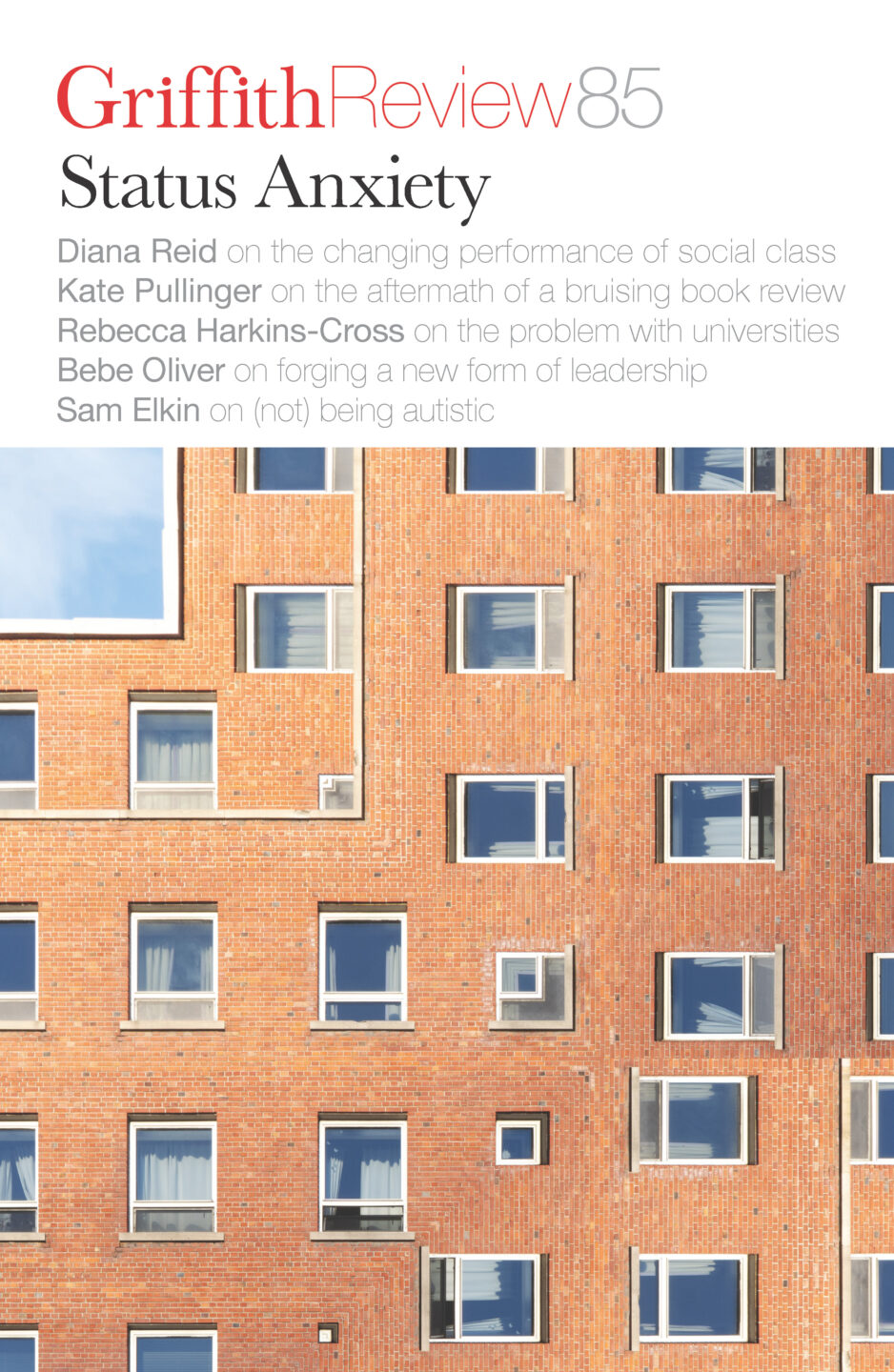Featured in

- Published 20240806
- ISBN: 978-1-922212-98-6
- Extent: 216pp
- Paperback, ePUB, PDF


Already a subscriber? Sign in here
If you are an educator or student wishing to access content for study purposes please contact us at griffithreview@griffith.edu.au
Share article
About the author

Greg Foyster
Greg Foyster is a writer and illustrator living on Wadawurrung country, Geelong. His short stories have been published in Meanjin, Overland, Aurealis, The Big...
More from this edition

Uninsurable nation
Non-fiction AS I DRIVE into the small Victorian riverside town of Rochester, a banner tied to a metal fence greets me on the main road....

Birthmarks
Non-fictionThere’s no denying the pride and glory that comes with being born Aboriginal and knowing it, along with knowing the history of my culture. Yet with this comes a weight, attached by invisible rope tied by the hands of colonial settlers. Aboriginal people live with the death and damage our ancestors have experienced since 1788, while trying to outweigh it with the strength we inherit from the 2,000 generations that came before us. Cultural integrity is one of many facets of Aboriginal identity, and a testament to our reclamation of social governance led by our own communities. Aboriginal people recognise the power and impact lore and values have on the body and mind, and the life elements between, and this fuels our fire to design structures that allow our knowledge and history to be at the forefront of the services our people receive. Certainly, this powered my need to be working within the community, to acknowledge and understand the strength we find in the face of difficulty and push it into the valleys of my physical form as an Aboriginal creative.

The Juansons
FictionIn the morning, she walks over to the Johnsons’ place and knocks on the door. Nothing. She calls the police, but once the officer on the phone understands that Norma is not the boy’s kin, he brushes her off. She makes coffee and goes into the living room and turns on CNN. A banner across the top of the screen reads: INSTANT E-DEPORTATIONS ACROSS US.